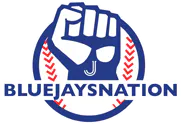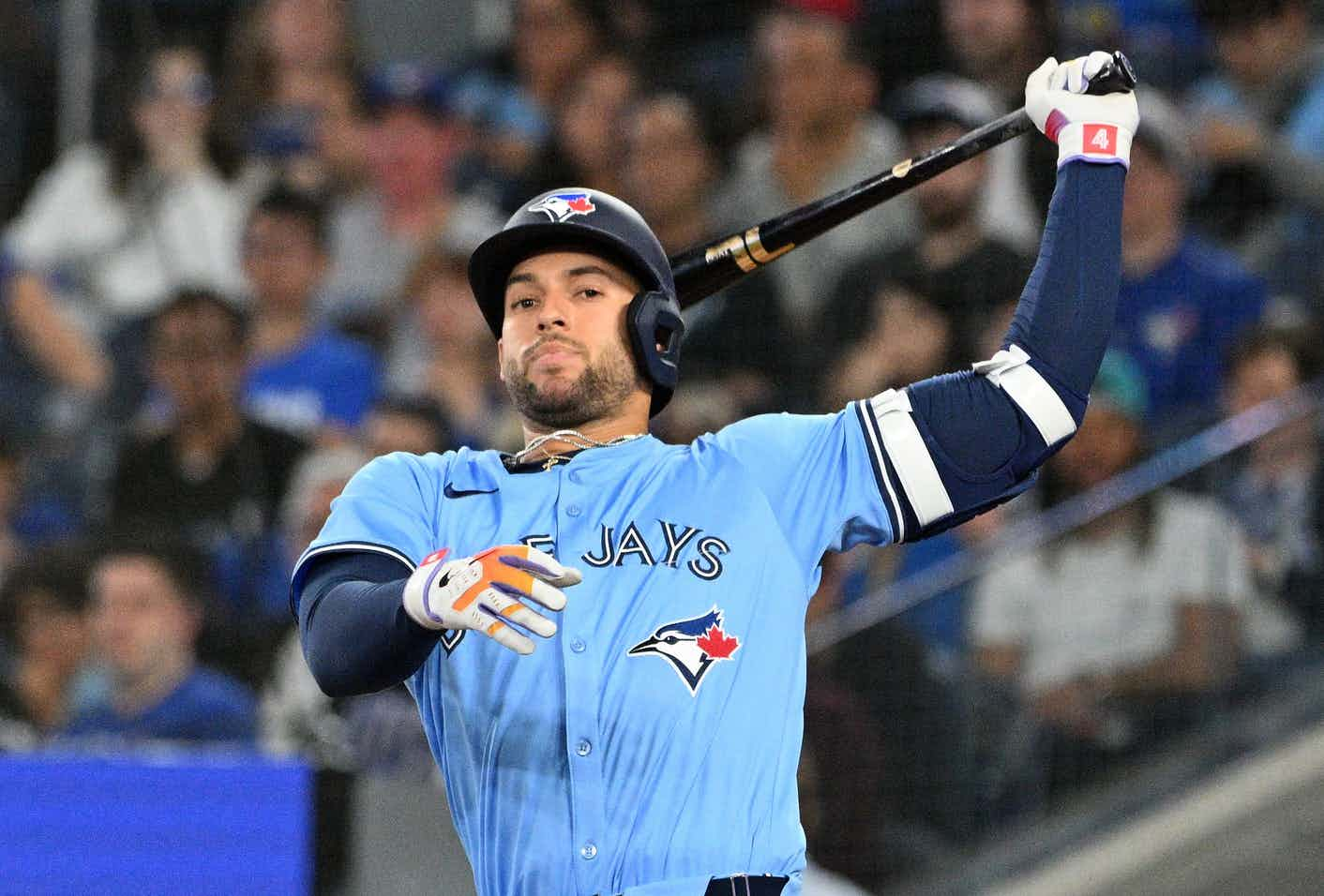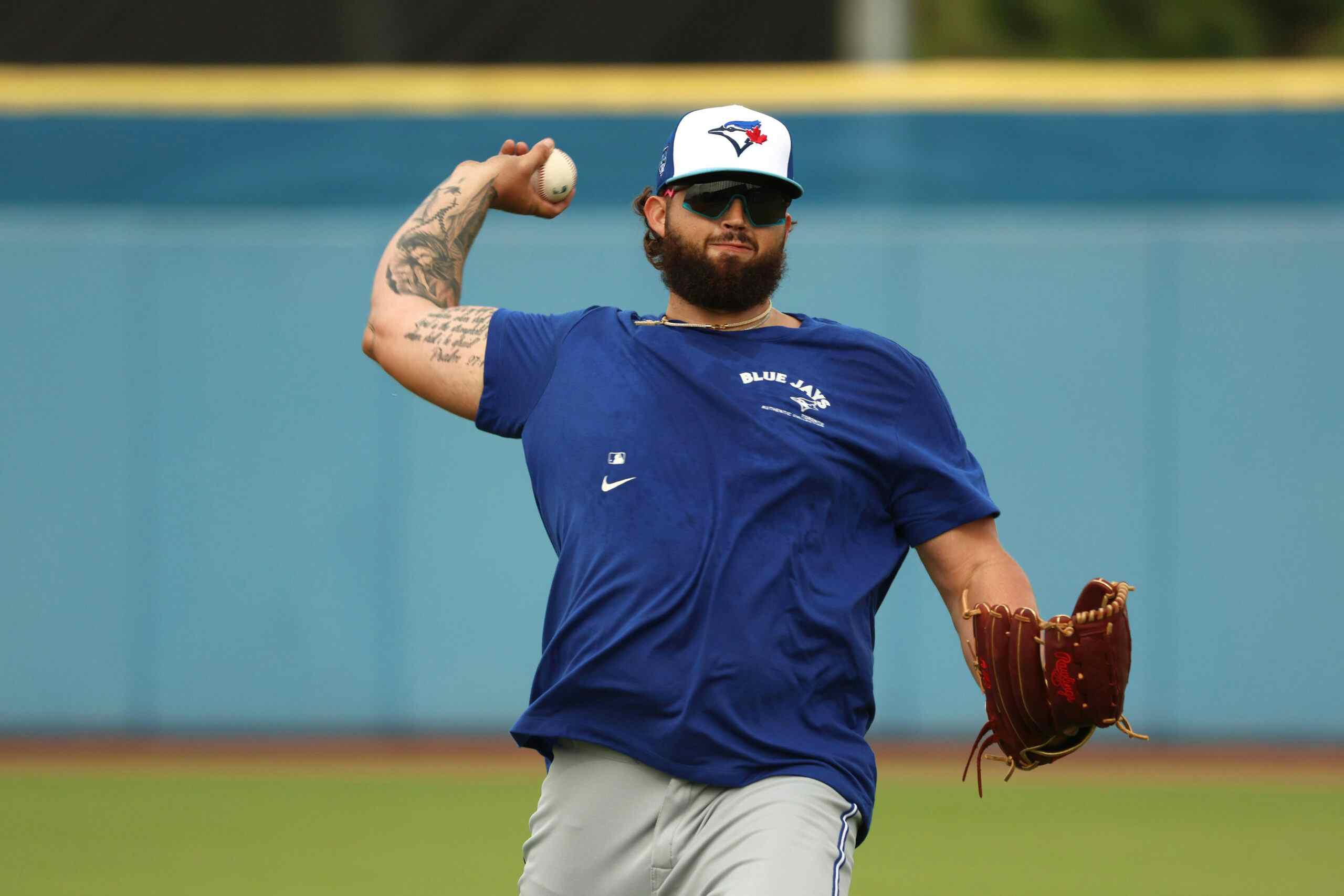Fowles: Sports Twitter Etiquette (LOL)
Now before I start things off I want to say I truly, deeply love Sports Twitter. For someone who, in “real life,” doesn’t have a great deal of sports-watching friends, it has been a real haven, a place to share jubilant moments and lament heartbreaking losses. Freelancing can indeed be a lonely life, and it’s a gift to be connected day-to-day with so many people who love what I love. My curated feed has showered me in memes, and adorable stories, and fascinating opinions. It can, at times, be joyous and exhilarating.
Through the glory of Sports Twitter I’ve met a wonderful group of diverse baseball fans from across North America, spanning numerous allegiances and interests, and they’ve revealed to me the myriad opinions one can have about this game we all enjoy. I’ve found the support and insight of a great group of sports writing women, discovered new opportunities, and learned a great deal about teams and players that were far outside my sphere of knowledge. It’s taught me that people — strangers — can be truly great.
Beyond that, when you can’t actually make it to the ballpark, Sports Twitter is a great alternative to revel in that roaring communal atmosphere. In fact, social media can be at its very best when the game is on. (The Olympics, for example, was an incredible online experience.) For me, there’s no better digital feeling than when Josh Donaldson hits a home run and my feed is full of exclamations of elation and celebratory gifs. It makes trade deadlines exciting and breaking news thrilling. But more and more it seems to me that a toxic minority never got the “good behavior” memo, and they’re determined to ruin everyone’s good time. Either they’ve chosen to dismiss basic etiquette entirely, or never learned it in the first place, and the result is driving people away from this thing that is intended to bring them pleasure.
Now, I have no intention of telling people what to do with their personal Twitter feeds. You are of course welcome to put anything you want out there and no one can stop you. (Unless you delight in threatening people with violence, because that’s egregious, probably illegal, and you should take a long hard look at yourself.) I’m also not talking about targeted online harassment, which is a much more serious issue that many, including myself, have tackled before. What I am saying is that this is about people’s leisure time, people’s relaxation, and maybe just try to be nice and leave them alone to enjoy it. If you want to grumble about an underperforming player, or make crass, inappropriate jokes about Edwin Encarnacion’s legal issues, yes, that’s within your rights—but maybe have a little think about what kinds of thoughts you’re pouring into someone else’s mentions and why it feels so necessary for you to do so.
I get that people approach baseball in all sorts of different ways. Some of us are relentless optimists, others are realists, while some keep their expectations low and their annoyances high. Further, discussion—even of the heated variety—is obviously a valued aspect of the platform, and bantering about sports from different perspectives is certainly fun and educational. Critique and debate is vitally healthy, important, and sometimes very necessary. Just maybe consider what you’re doing before exclaiming “he’s trash!” at someone about their favourite player. Maybe rethink directing your lengthy diatribe about how a player “needs to be cut” at a person you’ve never met. I mean, you wouldn’t turn to a stranger at the ballpark and tell them the player they’re cheering for is garbage, would you? (Wait, would you?)
Another person’s Twitter experience is not your personal comment section. It’s not a dumping ground for incendiary sports opinions and related profanity, especially if you don’t know them, don’t follow them and they don’t follow you, and you’ve never interacted with them before. I can pretty much guarantee they don’t care about your opinions, and don’t care for your tone, and I’m also pretty sure the two of you are not going to have valuable, furtive conversation about whether or not “that guy stinks!” All you’ve really managed to do is make someone else’s experience of the game worse.
I get it. You’re frustrated. You’re frustrated that the Jays are so close yet so far, and you believe that some players are underperforming and some bad managerial decisions are being made. RA Dickey’s knuckleball scares you. Michael Saunders is slumping. You don’t understand why they signed Smoak. The Jays just got obliterated by the Angels when we were all pretty sure they had this one in the bag. It’s almost September, and both the Sox and the Orioles are far too close for comfort. You need valve release, just like anyone who is facing stressful times. You need to vent your anger and your disappointment so it doesn’t fester inside you like an unchecked infection of all-consuming rage.
But why, my friend, are you directing it at me, or the MLB tweeter, or Mark Shapiro, or poor, bombarded Mike Wilner? Why are you hunting down fans of opposing teams, or people who simply don’t share your take, to shame and insult? Why are you tagging all the particular ball players you’re irritated with on your tweets? Maybe you should start a home renovation project, take a cooking class, or run a marathon, or some such thing people do when they need to channel all that negative energy.
Call me crazy, but I don’t think telling @bringerofrain20 his hair looks terrible (actual tweet) is going to influence his performance either way. (Also, his hair looks great, obviously.) I don’t think being the twenty-seventh person to correct someone’s pretty innocuous sports opinion is going to make them take too kindly to changing it. “You suck” is not the siren song of change for professional athletes. You are by all means welcome to being a negative, hateful, in-game trash-talker, but why not just keep it in your own little world instead of bombarding unsuspecting non-following strangers with it directly. We’re all here to enjoy the thing we care about, and if your chosen methodology is rampant negativity, why not make a little effort to keep it contained.
On any given day, any thread on any player’s tweet is littered with insults, assessments of his performance, and opinions on his fate. Beyond my own dealings with “opinionated” strangers, I have contact frustration watching high profile individuals navigate a sea of hateful spew during each and every game—so much so that the fun side of Sports Twitter is starting to be overtaken by a dark cloud of toxicity. (Nobody wants that, right?) “Try to be nicer” in the face of the monolith of poison the internet produces daily does feel more than a little futile, but it certainly shouldn’t be controversial. As the season gets more fraught and fans more frustrated, its worth pointing out that it takes very little to be considerate to players, personalities, and fellow fans online.
In fact, in this particular case, it takes doing absolutely nothing.
Recent articles from Stacey May Fowles






